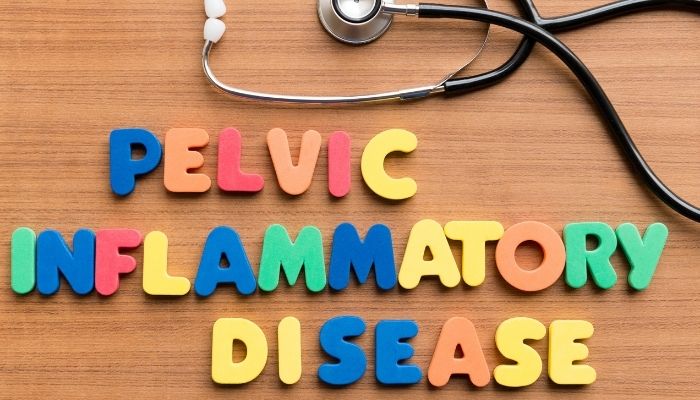Pelvic inflammatory disease (PID) is an infection that primarily happens in the female reproductive system. The pelvis is situated in the lower abdomen and it consists of various organs including fallopian tubes, ovaries, cervix, and uterus. According to the US Department of Health and Human Services, nearly 5% of women in the United States are affected by this disease.
PID is very dangerous and even can make your life risky if not treated. This infection can spread to your blood, so if you are suspecting any infection, consult the doctor as early as possible.
Symptoms of Pelvic Inflammatory Disease
Let’s take a look at various symptoms of PID. Though you may not experience any symptoms of PID initially, once the infection gets worse, you can have,- Pain in your belly, pelvis, and lower abdomen area
- Hefty vaginal discharge with an unpleasant odor
- Unusual bleeding than your normal menstrual period
- Bleeding between periods
- Pain during sex
- Pain and chills
- Pain when urinating or a hard time going
- Throwing up, or feeling like you are going to throw up
If you don’t treat PID, you may face problems while getting pregnant or you may face recurrent pain in your pelvic area. Some patients may suffer from more intense symptoms like
- Severe pain in your lower abdomen
- Signs of shock, like fainting
- Vomiting
- High fever more than 101 F
How Is PiD Diagnosed?
Your doctor will perform a pelvic examination to check whether there is any tenderness in your cervix uterus, and other organs like ovaries and fallopian tubes.The doctor will recommend some tests like:
- A blood test to check for sexually transmitted infection
- An ultrasound to check the images of all internal organs
Risk Factors for Pelvic Inflammatory Disease (PID)
If you have some pelvic inflammatory diseases like gonorrhea, chlamydia, or other STIs, then you are more susceptible to PID. Some other risk factors can be:- Indulging sex under the age of 25
- Having multiple sex partners
- Having sex without a condom
- If you have inserted an intrauterine device (IUD)
- Douching
- If you have a history of pelvic inflammatory disease
Pelvic Inflammatory Disease Treatment
If you are suffering from PID, your doctor will recommend you some antibiotics, but sometimes, you may need to be admitted to the hospital.The markets are flooded with different types of antibiotics that will work against the illness. Your doctor will give several types of antibiotics together to see the results. You may need to take antibiotics for 2 weeks. You should follow the directions and continue them, even if you feel better.
You may start seeing improvements within 3 days. If not, then talk to your doctor, you may need to try different antibiotics.
If your problem is serious, you may need to stay in the hospital. There may be several reasons for this:
- If your situation is not improving even after taking antibiotics, your doctor will ask you to conduct more tests to figure out the reasons.
- You may need antibiotics with a IV. Your doctor will insert antibiotics directly into your body with intravenous fluids.
- Sometimes you may develop a “Tubo-ovarian abscess.” In this case, your ovary or fallopian tube is filled up with infected fluid that needs to be drained immediately. IV antibiotics are applied initially to clear up the infection.
- If you have other conditions like stomach pain, vomiting, or high fever, your doctor will rule out other abdominal problems like appendicitis.
The bacteria that are responsible for PID may spread through sexual contact. So, if you are sexually active, your partner needs to treat PID. But men are the silent carriers for pelvic inflammatory disease. If your partner is not treated, your infection may recur. So, your doctor will advise staying away from sexual intercourse until the infection is resolved completely.
How to Prevent PID?
You can minimize the risk of PID by following:- A safe sex practice
- Getting tested for sexually transmitted infections
- Avoiding douches
- Wash your bathroom completely after using to prevent bacteria from entering your vagina
Long-Term Complications for PID
If you are suspecting that you have PID, talk to a doctor immediately. The symptoms of PID have many resemblances to UTIs. But your doctor will confirm the condition and rule out other conditions.If you don’t opt for the treatment of PID, you may face some other problems like:
- Infertility (unable to conceive a child)
- Ectopic pregnancy (a pregnancy that happens outside the womb)
- Prolonged pelvic pain caused by scarring of the fallopian tubes and other pelvic organs
- If the infection spreads to your blood, this can be life-threatening




